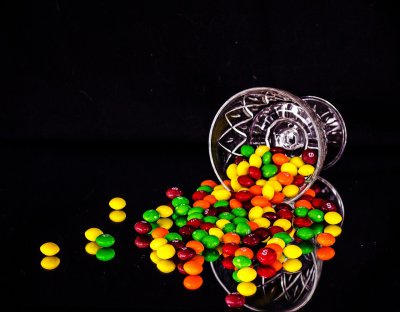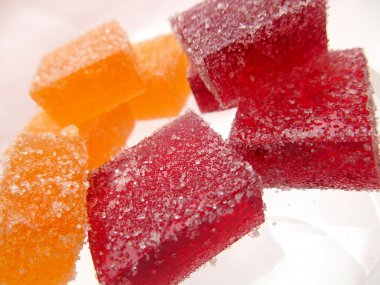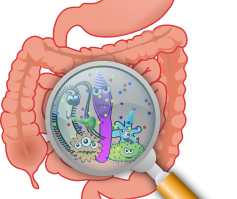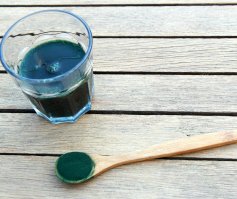 The desire to eliminate white sugar from the diet sometimes leads us to use various types of sweeteners. While some sweeteners are well tolerated and harmless by our body, a few certainly deserve to be looked at carefully. When it comes to our health, it is not worth risking by improving the taste of dishes with "suspicious" substances.
The desire to eliminate white sugar from the diet sometimes leads us to use various types of sweeteners. While some sweeteners are well tolerated and harmless by our body, a few certainly deserve to be looked at carefully. When it comes to our health, it is not worth risking by improving the taste of dishes with "suspicious" substances.
Saccharine
 The first of the infamous substances is saccharin and its salts (sodium, potassium, calcium salt). In the composition of the products it is marked with the symbol E 954. Saccharin is used to sweeten non-alcoholic dietary drinks and pharmaceutical preparations. Years ago there was a link with the frequent occurrence of bladder cancer in rats. This has led to its withdrawal from the market in some countries. Currently, the study does not indicate that this substance has such a negative effect on the body. Although the consumption of food or beverages with its addition may cause hives, itching and eczema, nausea, headaches and diarrhea, it is allowed to be marketed. Were the earlier hypotheses really so far removed from the actual situation? There is no unambiguous answer to this question, some experts are not convinced by the current research results. The fact that the consumption of saccharin may cause the symptoms described above is sufficient reason to limit its intake and, preferably, to completely dispense with products containing this substance.
The first of the infamous substances is saccharin and its salts (sodium, potassium, calcium salt). In the composition of the products it is marked with the symbol E 954. Saccharin is used to sweeten non-alcoholic dietary drinks and pharmaceutical preparations. Years ago there was a link with the frequent occurrence of bladder cancer in rats. This has led to its withdrawal from the market in some countries. Currently, the study does not indicate that this substance has such a negative effect on the body. Although the consumption of food or beverages with its addition may cause hives, itching and eczema, nausea, headaches and diarrhea, it is allowed to be marketed. Were the earlier hypotheses really so far removed from the actual situation? There is no unambiguous answer to this question, some experts are not convinced by the current research results. The fact that the consumption of saccharin may cause the symptoms described above is sufficient reason to limit its intake and, preferably, to completely dispense with products containing this substance.
Acesulfame K
 Acesulfame K, known as E 950, is a sweetener and flavour enhancer. By food manufacturers used in the manufacture of "sugar-free" foods and drinks. These products are low in calories and, thanks to the catchy descriptions on the packaging (e.g. "sugar free"), are sold in huge quantities. In addition to food, this substance can also be found frequently in oral hygiene products.
Acesulfame K, known as E 950, is a sweetener and flavour enhancer. By food manufacturers used in the manufacture of "sugar-free" foods and drinks. These products are low in calories and, thanks to the catchy descriptions on the packaging (e.g. "sugar free"), are sold in huge quantities. In addition to food, this substance can also be found frequently in oral hygiene products.
Potassium acesulfame is very sweet. Already 0.08 g of this product is enough to replace 2 teaspoons of white sugar.
Consumption of this substance may cause hyperactivity, headaches, respiratory diseases. Cases of cancer have also been reported in animals. Although it is practically impossible to eat half a kilo of such a sweet product, it must be remembered that such a dose can lead to death. It is currently considered that taking potassium acesulfame, at a rate of 9-15 mg per kg body weight, does not have a negative effect on health.
Aspartame
 This substance, abbreviated to E951, is an enhancer of taste and smell and a sweetener. It is used to improve the taste of low-calorie products. It can be found in diet drinks, chewing gums, soluble coffee. Unfortunately, it is also used to sweeten medicines for children. Manufacturers encourage people to buy goods with aspartame, tempting them with assurances with zero sugar content. But wouldn't sugar be less harmful than aspartame?
This substance, abbreviated to E951, is an enhancer of taste and smell and a sweetener. It is used to improve the taste of low-calorie products. It can be found in diet drinks, chewing gums, soluble coffee. Unfortunately, it is also used to sweeten medicines for children. Manufacturers encourage people to buy goods with aspartame, tempting them with assurances with zero sugar content. But wouldn't sugar be less harmful than aspartame?
Aspartame intake can be combined with hyperactivity, aggression, headaches, dizziness, migraines and even depression. This is only a small part of the negative effects of consuming this substance.
Mannitol
 Mannitol is a sweetener with symbol E421. It is used by manufacturers in products such as chewing gum, jellies, jams, sweets.
Mannitol is a sweetener with symbol E421. It is used by manufacturers in products such as chewing gum, jellies, jams, sweets.
May cause hyperactivity, vomiting, diarrhea, nausea and urticaria. Children and people with diabetes should especially avoid it.
A sweetener with a similar sounding name - maltitol, unlike manitol, is considered to be a harmless substance when consumed in small quantities. It is worth paying attention to this convergence of nomenclature, so as not to supply ourselves with a product that has a negative impact on our organisms by being distracted. The symbol of maltitol is E965.
Cyclamic acid
We also do not recommend buying products that contain the substance marked with the symbol E952, i.e. cyclamic acid. It is like the above preparations, taste and smell enhancer and sweetener.
Cyclamic acid and its salts (calcium and sodium) are components of canned foods with additionally sweetened fruits, soft drinks, low-calorie products.
Consumption of products containing cyclamic acid may cause migraines, skin diseases, itching, hives. This preparation adversely affects the reproductive system, liver, pancreas and other organs.

The substances listed here are not withdrawn from sale, but their harmful effects on the body should prevent us from taking them. Unfortunately, these preparations are massively added to various foodstuffs, and their use paradoxically increases the attractiveness of drinks and dishes, thanks to the penetrating advertising of low-calorific value of these sweeteners. Various experts suggest that sweeteners should replace traditional white sugar. This is only part of the reason. The second is to replace sucrose wisely and choose sweeteners that do not harm our health.















